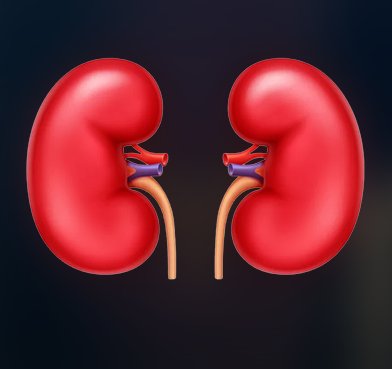When the kidneys have less than 10 percent of the function remaining, it is known as end-stage kidney disease or kidney failure. Kidney failure is a condition where one or both kidneys are not able to work on their own. The possible reasons for kidney failure include diabetes, high blood pressure, or acute kidney injuries. It can often be alarming to be diagnosed with kidney failure as it is one of the most severe stages of kidney disease. Fortunately, there are treatments available to treat kidney failure.
In this blog, we will take a deep dive into the question of the hour, i.e., ‘Can I survive with kidney failure?’ This blog will also guide readers on kidney failure and its effective treatment options. The insights for this post have been gathered from Dr. Niren Rao, who is widely considered the best urologist in Delhi. He is also the founder of the esteemed urology facility, Delhi Urology Hospital. Let’s begin by knowing kidney failure in detail.
Kidney Failure: Overview
Before kidney failure arises, patients experience chronic kidney disease. Kidney failure occurs when kidneys do not work the way they should and require a replacement. Kidney replacement is often accomplished with the help of dialysis or by kidney transplant. The problems that result in kidney failure include high blood pressure, high blood sugar, polycystic kidney disease, etc.
What are the Signs of Kidney Failure?
In the early stages of kidney disease, many individuals experience few or no symptoms. However, if the kidneys are not working correctly, one may experience one or more signs stated as below:
- Tiredness
- Nausea
- Vomiting
- Swelling
- Peeing more usual
- Itchy skin
- Poor appetite
- Cramps
Are you experiencing these signs of kidney failure? Then, it’s time to consult a urologist for a complete diagnosis. To do this, one can consider consulting the expert urology doctor, Dr. Niren Rao, at Delhi Urology Hospital, the best urology hospital in Delhi.
Can I Survive Kidney Failure?
Surviving kidney failure will depend on factors such as the treatment options, the patient’s age, the underlying cause, and how severe the condition is. If one is experiencing kidney failure, the urologist may recommend different treatments to keep the patient alive. There are two main treatment options available for kidney failure. These include:
1. Dialysis
Dialysis helps the body in filtering blood. The two types of dialysis include the following:
- Hemodialysis: In hemodialysis, a machine helps to clean the blood. Most individuals get hemodialysis 3-4 days a week at a hospital.
- Peritoneal Dialysis: In peritoneal dialysis, the urologist attaches a bag with a dialysis solution to the catheter in the abdominal lining. The solution flows from a bag directly into the abdominal lining. It absorbs waste products and extra fluids and drains back into the bag.
2. Kidney Transplant
A kidney transplant is when the surgeon puts a healthy kidney from another person into the patient’s body. It is an effective way to treat patients with end-stage kidney disease. The kidney for transplant comes from individuals who have agreed to donate their kidneys when they die (deceased donors) or donated by healthy people, i.e., someone in their families (living donors).
A successful kidney transplant can improve one’s quality of life, especially for individuals with kidney failure. Therefore, one can recover from kidney failure with the help of dialysis or a kidney transplant.
Final Takeaway
The survival of kidney failure has immensely improved with advancements in medical sciences. Nowadays, urologists make use of the latest technologies and treatment options to improve one’s quality of life. If one is experiencing signs of kidney failure or has a severe kidney disease, one must seek the help of a leading urologist to get proper treatment.
You Can Seek Help from An Expert Urology Doctor, Dr. Niren Rao
In that case, one can make an appointment with Dr. Niren Rao, a urology doctor at Delhi Urology Hospital. The proficient urologist has nearly two decades of experience in performing successful kidney transplants. He has completed 700 successful kidney transplants so far.
During the consultation, the urologist will determine the patient’s overall health and advise on the most effective treatment options. He also provides proper treatment for kidney stones, bladder cancer, bladder stones, erectile dysfunction, infertility, prostate cancer, and many more at the advanced urology facility.
To improve your kidneys' health or get treated for any other urological concern, schedule an appointment with Dr. Niren Rao, a highly experienced urologist at Delhi Urology Hospital, today!
Read More:


Comments
Post a Comment